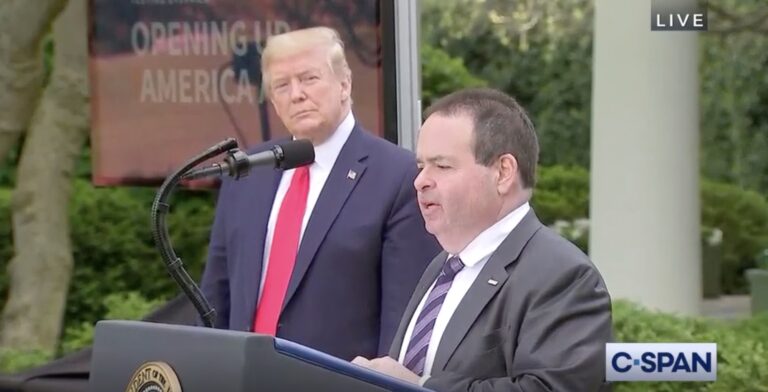On GameStop: Revolution or Risky Bet?
You do not have to be a regular reader of the Morning Brew or Wall Street Journal to be aware of the retail investing fervor that has overtaken social media. The hype surrounds a group of stocks that some are referring to as “meme stocks.” These stocks include GameStop (GME), BlackBerry (BB), Koss Corporation (KOSS), and AMC Entertainment (AMC). For those unfamiliar with the story, the frenzy originates from a Reddit subgroup known as r/WallStreetBets. The group exists to be a forum where aspiring traders exchange ideas or stories of their personal experience trading, often through apps such as Robinhood or any other online broker. It is also the origin point for the bubble that is created after a number of users show enthusiasm for the stock GME. This enthusiasm translated into a significant jump in the stock price in a few hours, which then translated into even more hype, driving the stock to a 52-week high of $483, up a ridiculous amount from the $40 figure around which it had been previously hovering.
The reason WallStreetBets settled on GME is due to the public information that a handful of hedge funds had placed against the rise of the stock. In other words, massive hedge funds were betting that the price of GameStop would decline. The sudden increase in the stock, as well as the BB, KOSS, AMC, and a handful of others, caused massive losses for these funds. One of these funds, Melvin Capital, lost 53% in the month of January. This is the point where I picked up interest in pouring some money into one of these stocks. I consider myself a novice investor and use the app Robinhood to play around in the stock market with some money I have saved up over the years. Generally, I stick to safer companies with high upside. But how could I resist a company like GameStop with the potential for massive growth, even if that growth was unrealistic and bordering on a pyramid scheme?
I chose not to invest money in the company, and within days the bubble had burst and GameStop was hovering around its current price of about $52. So why should the average person care about one stock that got hot for a day? Even if you have no interest in the stock market, it is becoming harder to avoid. The app Robinhood, which fueled the GameStop surge, boasts about 13 million users. The interface requires no minimum deposit and allows you to buy partial shares. If you want to buy Tesla with the $100 you made babysitting, all you need is a functional bank account and a small risk tolerance. This change may seem minor, but the stock market has never been so accessible to main street. Prior to the kickoff of Robinhood, traders would pay $5 to $10 per trade and be forced to make a minimum deposit to fulfill trading requirements. Further, Robinhood’s move to drop fees to zero forced other brokerages to match their zero fees policy, benefitting retail investors who have long been plagued by unnecessary fees. This was how I was first introduced to the app and found it to be a no-frills investing platform with little advice on how to trade. It is easy to see how millions of Americans were caught up in the fervor of “meme stocks.”
But what does Reddit’s attempt to take on Wall Street mean for the average person? Some are characterizing the attempt as a poor vs. rich story, where populist investors are sticking it to Wall Street. However, this perspective ignores the massive advantage that trading firms hold over small time investors. Institutional investors such as banks, hedge funds, and other groups heavily involved in the stock market have powerful computers with algorithms that execute trades based on major market fluctuations. In other words, the volatility of the past few weeks has benefitted wealthy funds as much as it has benefitted small retail investors. Additionally, if you were a Robinhood user like me who went through the same thought process when the price of GameStop was around $300, but you decided to buy a share, your share would only be worth $52 today.
Every time a bubble crops up in the market, you will hear from one side about how the ride will never end, and if you get in now you can make millions. This phenomenon happened during the dotcom bubble, where stocks with poor fundamentals were ballooned to prices that were unrealistic and eventually crashed. The New York Times did a feature piece on Americans who were burned or who cashed in from the boom bust of the past month, and it is worth reading as a cautionary tale. Although the recent booms make it seem like stock prices are based on nothing but popular sentiment, there is underlying data that encourages people to buy or sell stocks. While it’s true that some stocks are driven higher due in part to hype (see Tesla), they still have strong potential and there is a good reason for their growth. In the case of the meme stocks, the growth appears to be indicative of a populist fervor.
Overall, the average college kid or young investor looking to cash in quickly should find a casino or bookie to whom they can fork over their money. The odds of correctly picking a bubble and getting out in time are slim and doing so can cost you a lot of money. Although it is less entertaining and can seem like you are missing out, steering clear of market hysteria is a safer bet.
Jack Leger is a member of the class of 2021 and can be reached at jleger@wesleyan.edu.








Leave a Reply